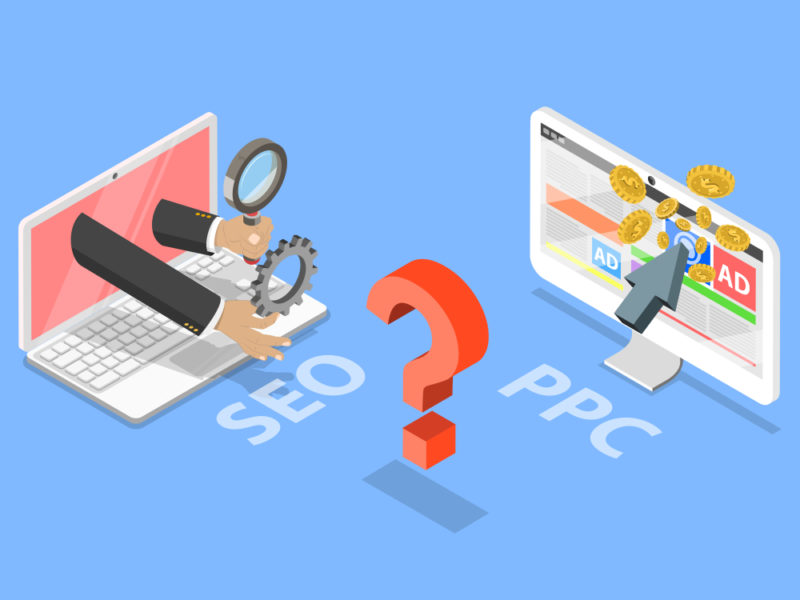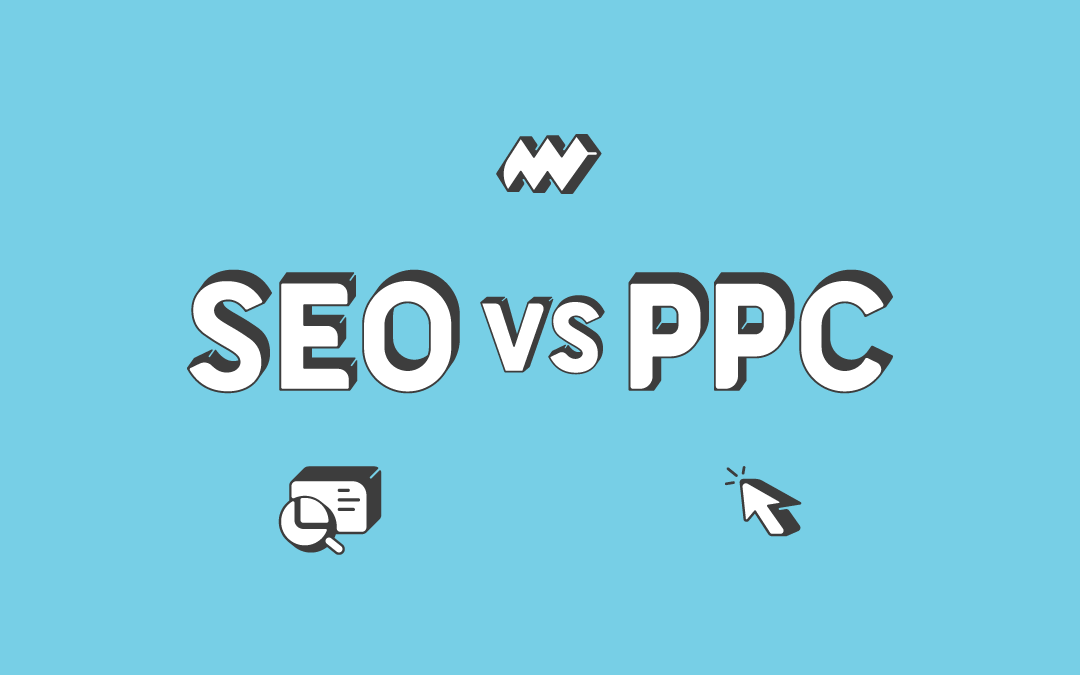In today’s digital landscape, search engines play a crucial role in connecting users with the information, products, and services they seek. As businesses strive to improve their online visibility, the debate between organic and paid search arises. Both approaches offer unique benefits and drawbacks, and understanding their pros and cons is essential for making informed marketing decisions. In this article, we will explore the advantages and disadvantages of organic and paid search methods to help you determine which strategy best aligns with your goals.
Search engine marketing encompasses two primary methods: organic search and paid search. While both aim to drive traffic to websites, they differ in terms of cost, time investment, and control over results. This article will delve into the pros and cons of each approach to help you navigate the complex world of search engine marketing. A Digital Marketing Company is a company that provides services and strategies to help businesses promote their products or services online. These companies specialize in utilizing various digital channels and platforms to reach the target audience and drive engagement, leads, and sales for their clients.
What is Organic Search in a Digital Marketing Company?
Organic search refers to the process of ranking in search engine results pages (SERPs) based on relevance and credibility rather than paid advertisements. It involves optimizing website content, improving user experience, and building backlinks to increase organic traffic.
Pros of Organic Search
Increased Visibility and Trust
One of the significant advantages of organic search is the potential for higher visibility in search results. Websites that consistently rank well organically are viewed as more trustworthy and authoritative by users. This increased credibility can lead to higher click-through rates and more qualified traffic.
Long-Term Results
Organic search offers the potential for sustainable long-term results. Once a website establishes a strong organic presence, it can continue to receive traffic and leads without ongoing monetary investments. By consistently providing valuable content and maintaining SEO best practices, businesses can enjoy lasting benefits.
Cost-Effective
Compared to paid search, organic search can be a cost-effective marketing strategy for Digital Marketing Companies. While it requires initial investments in SEO efforts, ongoing expenses tend to be lower. With effective optimization, businesses can attract targeted traffic without paying for each click or impression.
Builds Brand Reputation
Ranking well organically helps to build brand reputation and trust. When users consistently see a brand in top search results, they are more likely to perceive it as reliable and credible. Organic search allows businesses to establish themselves as industry leaders and gain a competitive edge.
Cons of Organic Search in Digital Marketing Company
Time-Consuming
Achieving high organic rankings can be a time-consuming process. It takes time to optimize web pages, create valuable content, and build authoritative backlinks. Organic search results are not immediate and require patience and consistent effort to yield significant results.
Competitive Nature
Organic search is highly competitive, particularly in saturated industries. Many businesses invest in SEO strategies to improve
their rankings, making it challenging to stand out from the crowd. Achieving top positions in organic search requires thorough keyword research, content optimization, and continuous monitoring and adjustments.
Dependence on Algorithm Changes
Search engine algorithms constantly evolve to provide users with the most relevant and high-quality results. While this is beneficial for users, it can pose challenges for websites relying on organic search. Algorithm updates can impact rankings, and websites must adapt their strategies to align with the latest requirements, which can sometimes be unpredictable.
Limited Control over Ranking Factors
In organic search, ranking factors are determined by search engine algorithms, and businesses have limited control over them. While optimizing website content, improving user experience, and acquiring backlinks are crucial, the ultimate decision lies with search engines and Digital Marketing Companies. This lack of control over ranking factors can make it difficult to achieve desired rankings.

What is Paid Search?
Paid search, also known as pay-per-click (PPC) advertising, involves displaying ads on search engine results pages. Advertisers bid on specific keywords, and their ads appear when users search for those keywords. Advertisers pay a fee whenever their ad is clicked.
Pros of Paid Search
Immediate Results
One of the major advantages of paid search is its ability to deliver immediate results. Once an ad campaign is set up, ads are displayed, and businesses can start driving traffic to their websites right away. This makes paid search an effective strategy for time-sensitive promotions or product launches.
Targeted Advertising
Paid search allows businesses to target their ads to specific demographics, locations, and user behaviors. This level of targeting ensures that ads reach the most relevant audience, increasing the chances of conversions. With precise audience segmentation, businesses can optimize their ad spend and maximize their return on investment (ROI).
Flexible Budgeting
Paid search offers flexible budgeting options. Advertisers can set daily or monthly budgets, ensuring they have control over their advertising expenses. This allows businesses of all sizes to participate in paid searches and adjust their budgets based on performance and Digital Marketing Company goals.
Control over Ad Placement
Paid search provides businesses with control over where their ads appear in search results. Advertisers can choose specific keywords, and locations, or even exclude certain websites from displaying their ads. This level of control ensures that ads are shown in relevant contexts, improving their effectiveness.
Cons of Paid Search
Costly Investment
Compared to organic search, paid search can be a costly investment. Advertisers pay for each click on their ads, and the cost per click (CPC) can vary depending on the competitiveness of keywords. Businesses with limited budgets may find it challenging to sustain long-term paid search campaigns.
Ad Fatigue
Paid search ads are displayed repeatedly to users, which can lead to ad fatigue. Users may become immune to seeing the same ads, resulting in a decline in click-through rates and conversions. Advertisers need to constantly refresh their ad creatives and test different variations to combat ad fatigue.
Limited Long-Term Benefits
Unlike organic search, paid search does not provide long-term benefits once the advertising budget is exhausted. Once businesses stop running paid campaigns, their visibility in search results diminishes. Paid search is effective for immediate results but may not sustain consistent traffic in the long run without continuous investment.
Vulnerability to Click Fraud
Paid search ads are susceptible to click fraud, where fraudulent clicks on ads are generated to deplete an advertiser’s budget or sabotage competitors. Click fraud can lead to wasted advertising spend and skewed performance metrics. Advertisers must monitor their campaigns closely and implement fraud detection measures.
Which Approach Should You Choose?
The choice between organic and paid search depends on various factors, including budget, timeline, and marketing goals. Organic search is
a long-term strategy that focuses on building credibility and trust through organic rankings. It requires time, consistent effort, and patience but offers sustainable results and cost-effectiveness in the long run.
On the other hand, paid search provides immediate visibility and allows businesses to target specific audiences with precision. It is a viable option for time-sensitive promotions and offers more control over ad placement. However, it requires a significant investment and does not provide long-term benefits once the campaign ends.
To make an informed decision, consider your Digital Marketing Company objectives, available budget, and timeline. In some cases, a combination of both organic and paid search strategies may be the most effective approach. Leveraging the strengths of each method can maximize your online presence and reach a broader audience.
Conclusion
In the battle of organic vs. paid search, there is no definitive winner. Each approach has its own set of pros and cons, and the optimal strategy depends on your specific business needs. Organic search offers long-term sustainability, increased trust, and cost-effectiveness, while paid search provides immediate results, precise targeting, and control over ad placement.
It’s crucial to assess your goals, budget, and timeline to determine the best approach for your business. Remember that search engine marketing is not a one-size-fits-all solution, and a tailored strategy aligned with your objectives will yield the best results.
FAQs
- Q: Can I use both organic and paid search strategies simultaneously? A: Absolutely! Many businesses adopt a hybrid approach to leverage the benefits of both methods. It allows you to maximize your reach and visibility in search engine results.
- Q: Is organic search more cost-effective than paid search? A: Organic search tends to be more cost-effective in the long run since you don’t pay for each click or impression. However, it requires ongoing investments in SEO efforts and content creation.
- Q: How quickly can I see results with paid search? A: Paid search can deliver immediate results. Once your ad campaign is set up, your ads will start appearing, driving traffic to your website almost instantly.
- Q: What is click fraud, and how can I protect my paid search campaigns from it? A: Click fraud refers to fraudulent clicks on your ads, often generated by bots or competitors. To protect your campaigns, monitor your ad performance closely, set up click fraud detection tools, and report any suspicious activity to the ad platform.
- Q: Which approach is better for brand reputation? A: Organic search is particularly effective for building brand reputation and trust. Ranking well organically signals credibility to users, leading to increased brand recognition and loyalty.




